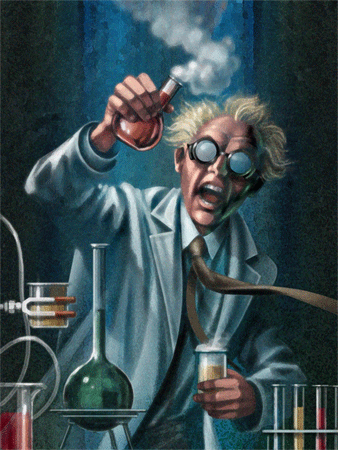The Revolution Will Not be MedicatedToday's news from the senate chamber is no less than fantastic. Really, I'm happy to see any motion on healthcare reform whatsoever; but to a very specific degree, does anyone else feel that this victory is Pyrrhic? Both the House and the Senate bills, which have yet to be reconciled, were near party-line votes (60-39 in Senate and 220-215 in the House) are the result of compromise followed by compromise, to the point where, while this bill will have its effects, no one really seemed happy with the end result.
Too often when learning/reading/listening about the healthcare debate, I want to throw my hands in the air and forget about it because, simply stated, where is this all going? Would a reform be e true revolution which is necessary. Regardless of one's political ilk, virtually everyone agrees that an overhaul is absolutely necessary, but there is severe disagreement about what to do about Americans' health insurance.
Throw it out.
That's it, throw it out. A certain, calming epiphany when I realized that this was the path-- healthcare needs a complete paradigm shift, a total revolution as to its purpose and existence. Why are we insured at all?
By definition, insurance is an agreed-upon, businesslike gamble. There's nothing wrong with this... in fact, much of modern life and commerce owes functionality to someone gambling that bad things won't happen. Every year, I spend hundreds of dollars on a gamble that I might find myself in an automobile accident-- I'm happy to have lost this wager every year, but it's nice to know that if I "win" and get the insurance company to pay out, it'll be helpful in the aftermath. All insurance is simply a gamble-- this is why certain religious groups such as the Amish and some Muslims do not participate in conventional forms.in·sur·ance
1 Coverage by contract whereby one party undertakes to indemnify or guarantee another against loss by a specified contingency or peril
Say what you will about gambling... coming from a town that relies on it, I see it as a fun vice when in control (as any other vice), but in the end, Americans can usually tell a good bet from a bad bet. I can wager that I won't crash my car or burn down my house by taking precautionary measures, and the respective insurance companies won't have to pay; in fact, I can continue being safe like this for years or even decades. Health is something entirely different-- sooner or later, everyone taking part in seeing a doctor or an ER or having a baby or whathaveyou.... it's a rare case when an one's odds of losing is 100% on a long enough time-scale.
So the insurance company always loses... and then passes the losses back onto everyone else. It's a guaranteed cycle, under which too many people have figured out how to make money. Now making money's not bad, it's the American Way, after all, but I do not need to renumerate the costs of what the healthcare industry does.
Simply stated, betting against not being sick is an outdated model for insurance companies. Even the insurance companies know this by now, as they no longer brand themselves as insurance industry, but healthcare industry. Keeping one's health no longer a gamble, it must be a service. Homeowner's insurance does not stop my house from being on fire, the community-supported firehouse does. Insurance policies are not without purpose, but where they are now, they are just in the way.
When I was about 10, I considered emergency services, which I think at the time was defined as "when someone is involved with sirens." Aware that the police and fire departments were a part of the city government, I asked my father about ambulances and hospitals being a part of the same structure of public services. He made a remark about the First Lady that I didn't really understand, but I remained even more confused that not dying was something for which you were given a bill.
Rules for insurers, public insurance, reformed insurance. Same song, new chorus. The fundamental idea of how Americans think of how we take care of ourselves simply needs change. This will come, assuredly, but not now; nor will it be easy.
The Revolution Will Not be Medicated.





